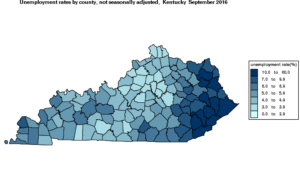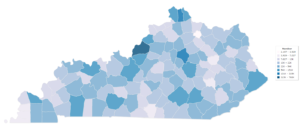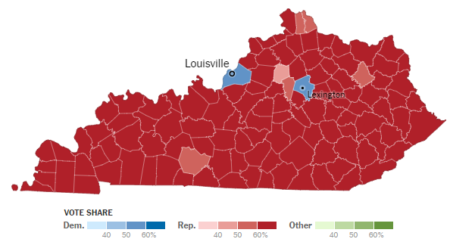Before I start, let me just say that I am also guilty of everything I’m about to criticize. I am a suburban dwelling Democratic upper class white guy who used to be a suburban dwelling Democratic middle class white guy. Sadly, it took this election for me to realize it.
There’s an interesting double standard in the rhetoric of the Democratic party. We liberals, being the fashionably sensitive lot we are, like to opine about white privilege and the plight of minorities in America. Now, notice that I didn’t put white privilege in quotes back there. It is a real thing. Systemic racism does exist, and there are countless studies and statistics which demonstrate this. It is undeniable that, when all else is equal, a white individual will be more successful than an individual of color.
The double standard, however, is that we don’t see the same thing when we discuss rural America. It is just as true that anyone born in an urban environment has a better chance of success than the same someone born in a rural environment. This is especially true when you factor in the suburbs surrounding cities, as they tend to have the best schools, services, and infrastructure.
Now, don’t gt me wrong, these are averages and generalities. Of course someone born in the poorest neighborhood of an inner city is going to be worse off than someone born in the wealthiest farming town. However, when you control for income, the differences are pretty stark.
Why? Access. An inner city youth has access to more government aid programs than a poor rural youth. More importantly, the plight of the inner city is easier to see and easier to rally behind. The rallying cries of urban protests are carried on national news and streamed over every social media platform. The silent suffering of some spread out ruralites is not.
This is where the concept of “urban privilege,” as I’ve decided to term it, starts to show. When the economy tanked at the end of the Bush years, it affected the entire country. Unemployment went up everywhere, and quality paying jobs became scarcer. Nearly every American had to do a little belt tightening as we faced a nationwide economic crisis. So, when he gained office, Obama and the Democratic Congress instituted drastic measures to re-start the economy and cancel out the recession. After a few years, the measures were shown to work; the economy was back up, unemployment was going back down, America was working again.
For the urban areas.
The trouble with gauging the economy as a whole is that it requires a mean derived across the whole country. For example, unemployment is currently below 5% nationally, but this doesn’t mean that everywhere has less than 5% unemployment. So, populated areas tend to tip the scales in favor of themselves since that’s where all the people live. If unemployment is at 4.5% in a region of ten million people, then it can be much much higher in regions of only a few hundred thousand. This is not a hypothetical, this is reality. Here are a couple maps to compare:

Sept 2016 Unemployment

2014 Population
Notice that the unemployment by county in Kentucky is nearly an inversion to the population map. In general, population centers have lower unemployment than the more rural areas. In the worst county, there’s a whopping 15.5% unemployment. That means in every gathering of just seven working age able adults, one of them can’t find a job. This is unfathomably high to anyone living in an urban center.
This is where things get muddier, especially when we need to talk about the issues that are important to people. Perspective is an important thing, but it’s important to get it from all angles.
From the Democratic urbanite perspective, some of the most important issues facing our nation are climate change, women’s equality, racial equality, income inequality, etc. However, and this is where I’m going to ruffle some feathers, having these issues as top priorities is an urban privilege perspective. We have the privilege of being able to say that the greatest threat to our nation and every nation is manmade climate change. We have the privilege of being able to say that income inequality is the greatest social injustice facing our generation. We have the privilege of being able to say that racial equality and women’s equality are things that need to be fixed before we can move forward. Those are all privileged positions.
Now don’t get me wrong, these are certainly important issues, but it is important to also understand that they are not a priority for everyone. More accurately, they can’t be a priority to everyone.
To a family living in a rural county with terrifyingly high unemployment, they can’t afford to worry about inner city black strife, they need to figure out how to put food on the table. They can’t afford to be concerned about unequal pay for women, they need to figure out how to pay for rising healthcare premiums. They can’t afford to be concerned about climate change, they need gas to be cheap enough that they can get to the one job available to them.
We in the liberal urbanite class chastise these sorts of people for having a too-narrow worldview. We often lament that they don’t have the education or the desire to see past their own petty problems at the bigger picture of the human condition. From the other perspective, we’re saying, “Look, we here in the cities have real problems to deal with, so we’ll get back to your fake problems when we solve these ones first.” I know, that sounds harsh, but that’s exactly how it seems from that perspective.
Again, it is crucial for me to say that the inequality problems on which liberals focus are very important, especially in a leading global superpower. Like it or not, we are an example to the rest of the world, so we should do everything we can to show that we take care of our populace no matter how diverse in culture and class. However, half of voting America believes that these problems are secondary to the more crucial issues in their lives, such as high unemployment and an economy which leaves them helpless and dependent. Those people aren’t concerned with the difficulties facing inner city minorities before they’ve dealt with the difficulty of making ends meet in their own lives.
One last map to compare to the above two, and this one speaks for itself. The 2016 presidential election results in Kentucky via The New York Times.

2016 Presidential Election
That’s a lot of red.

